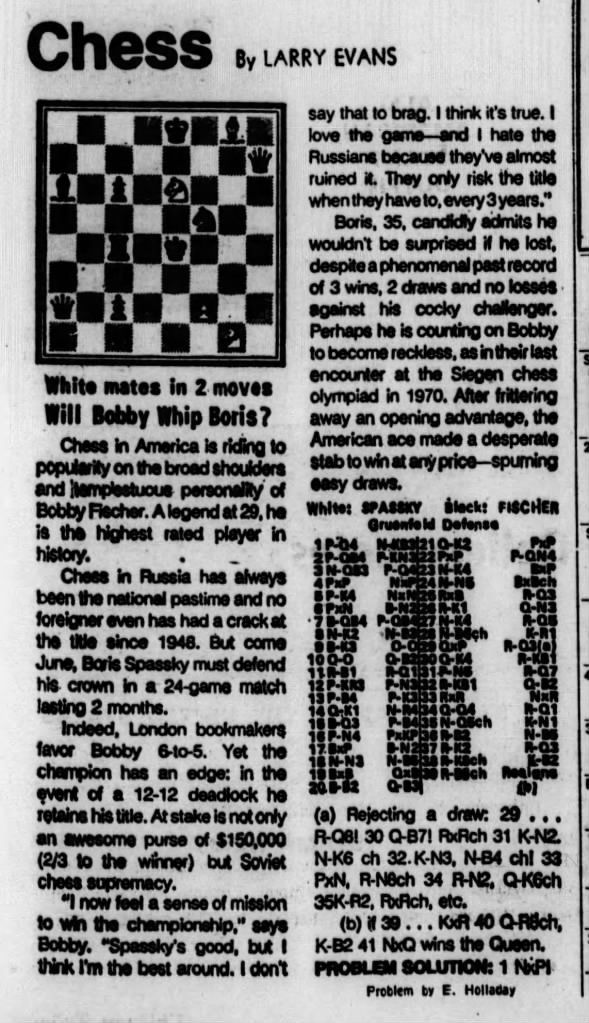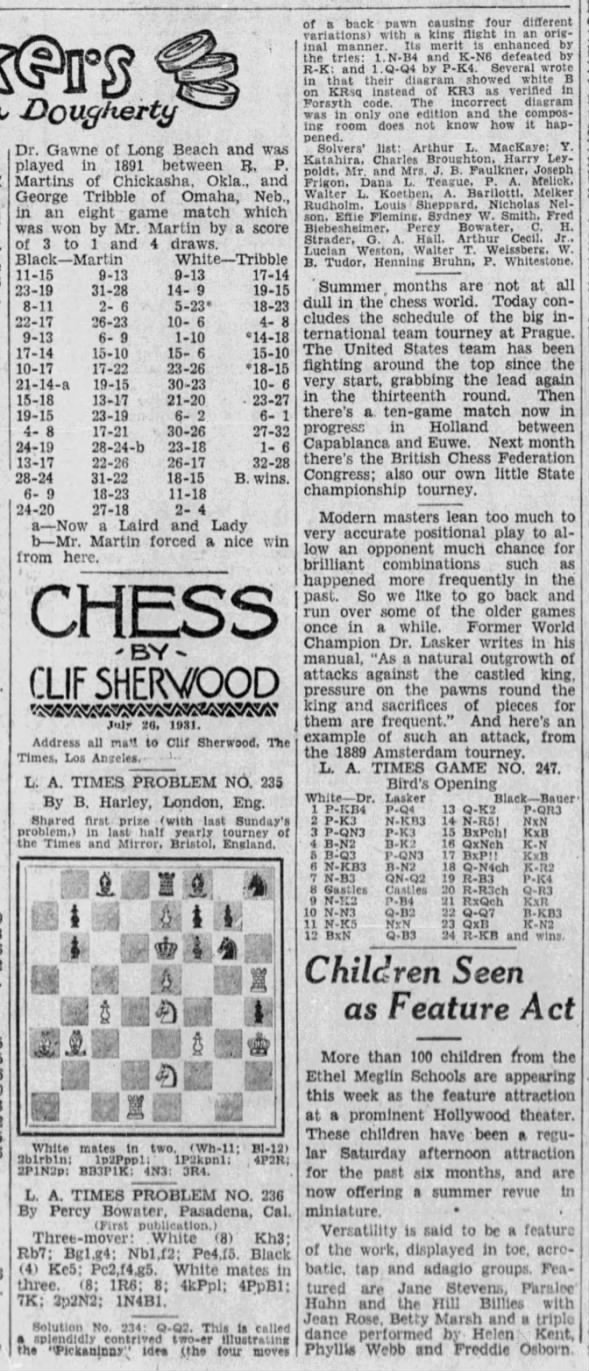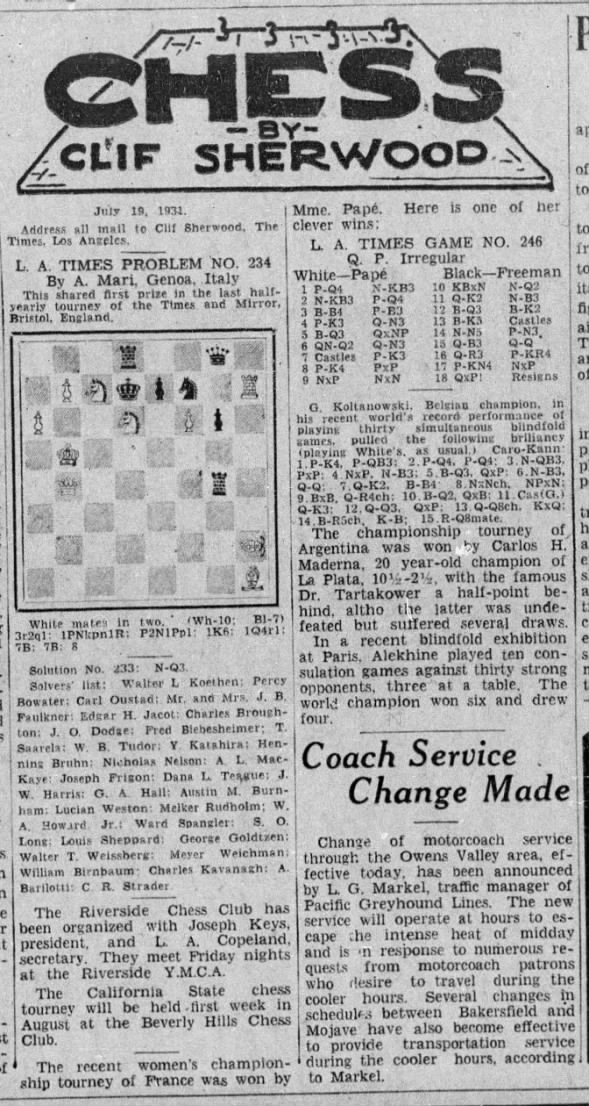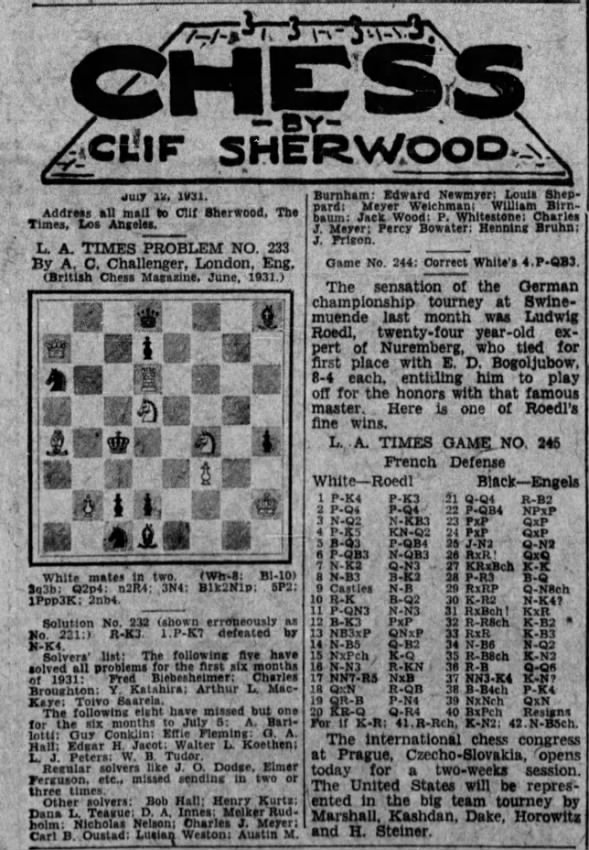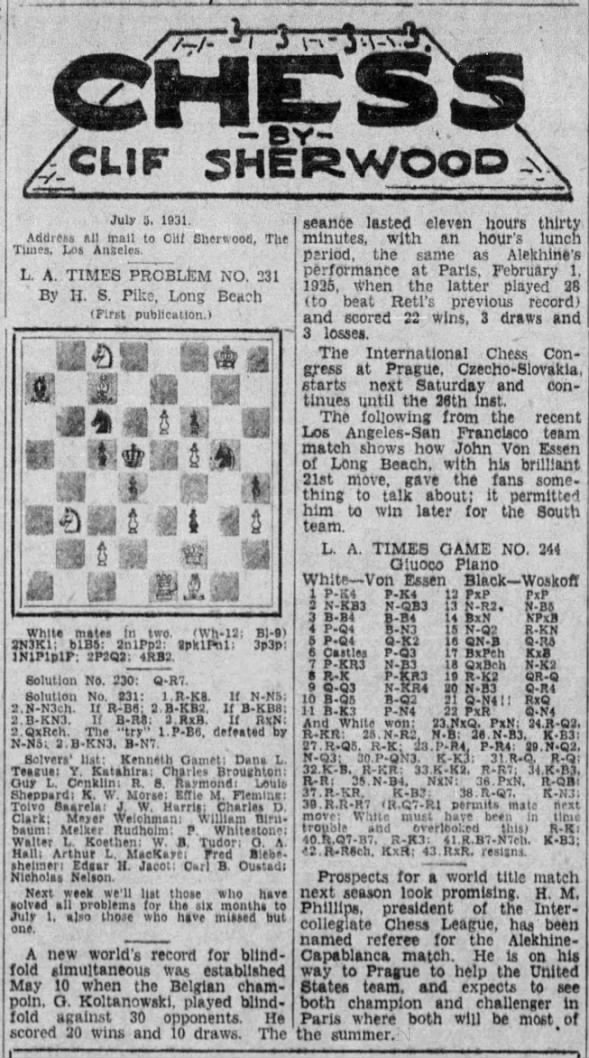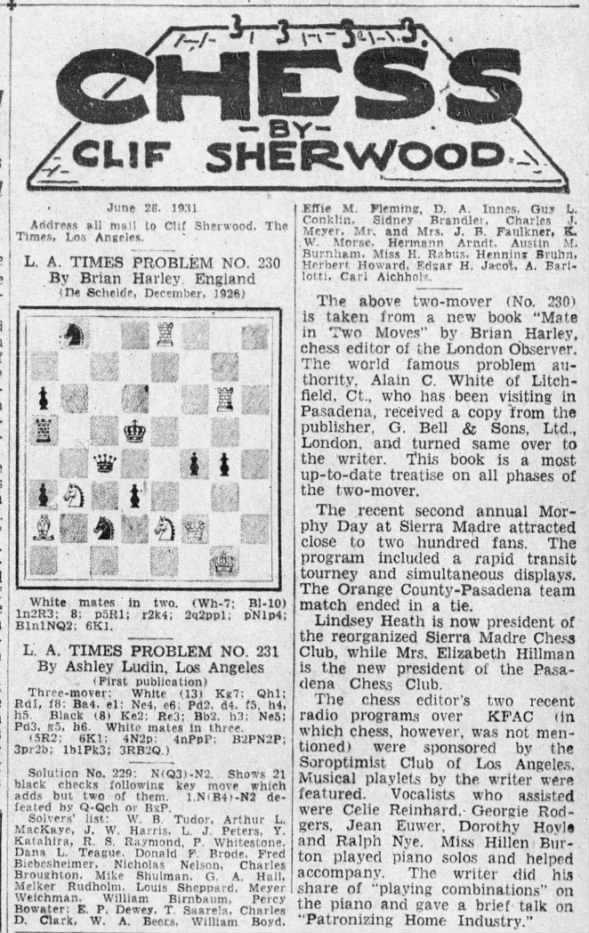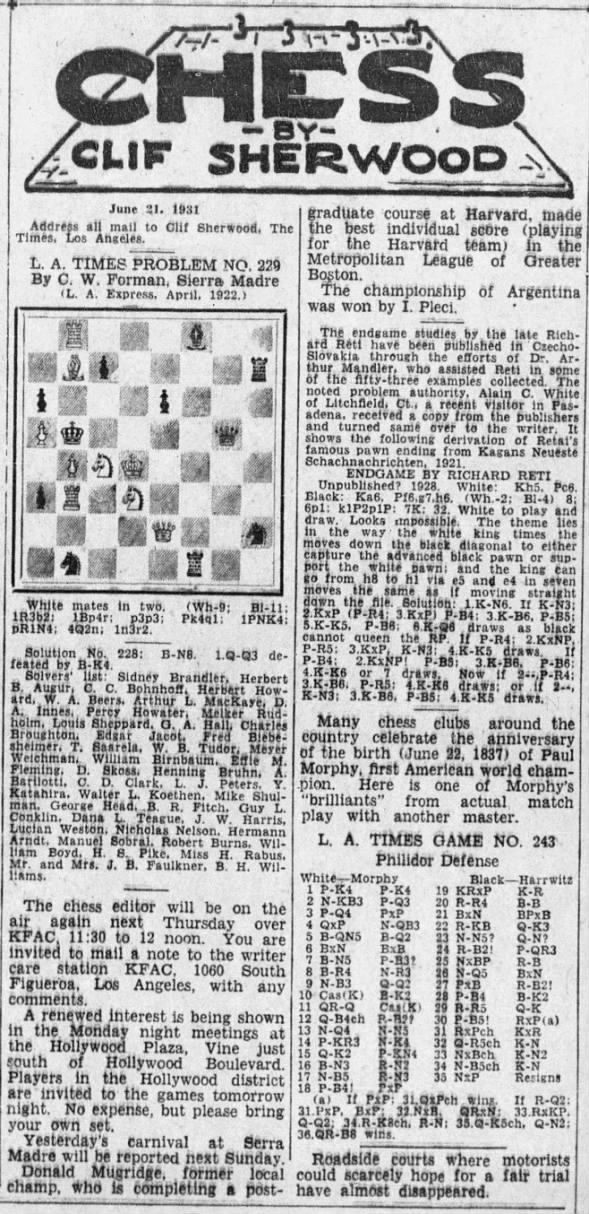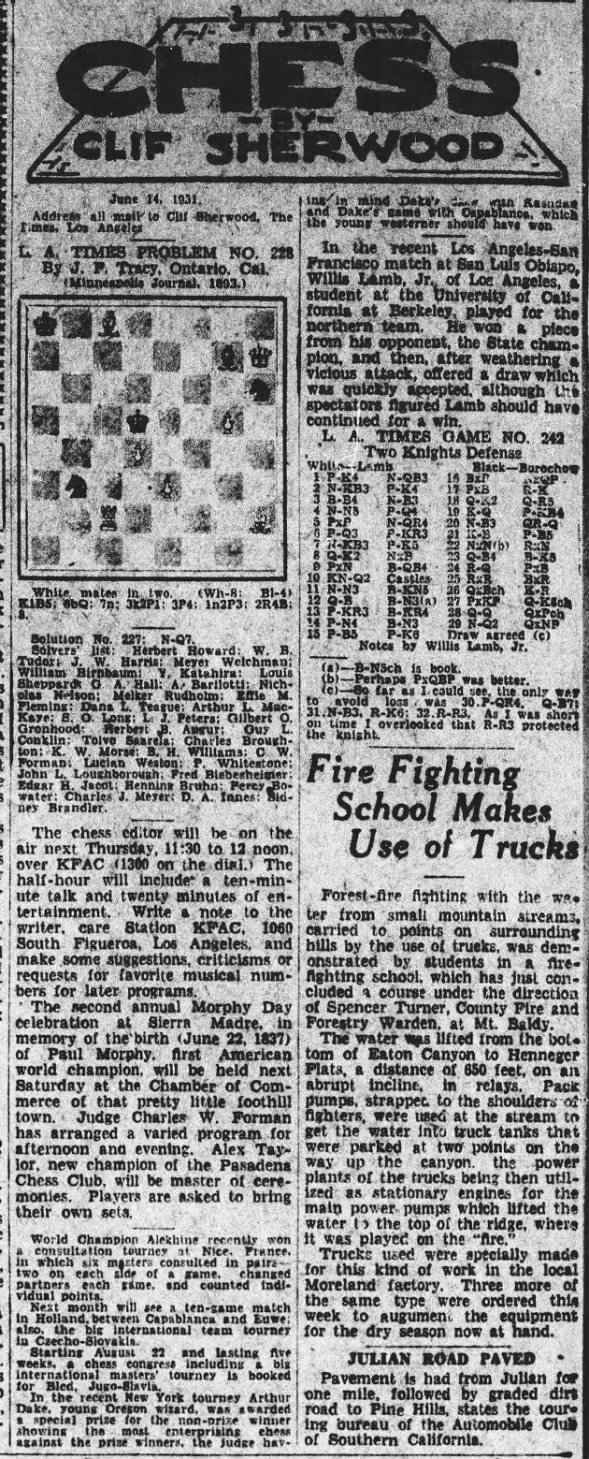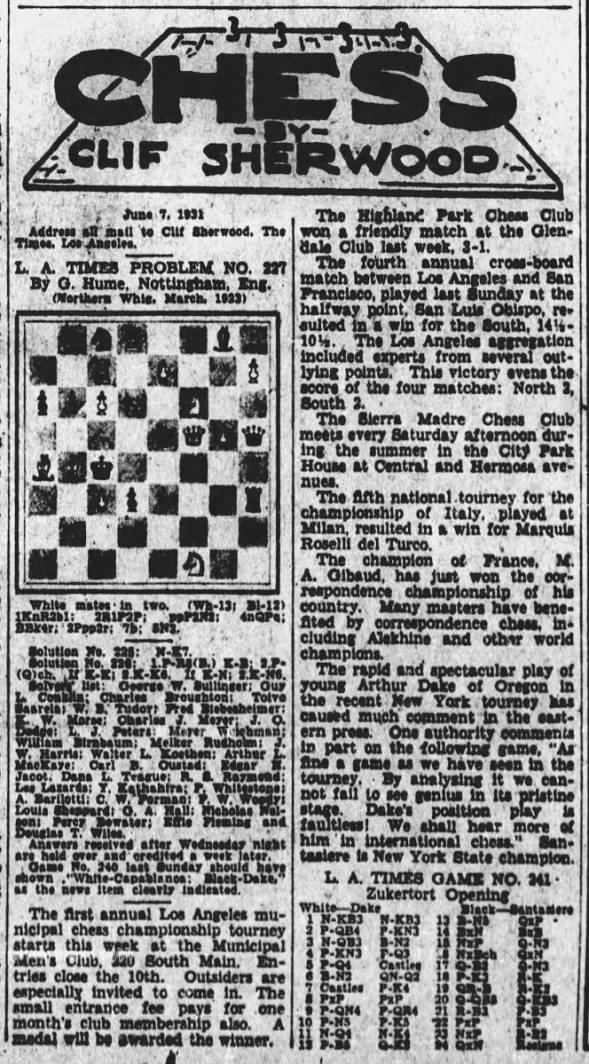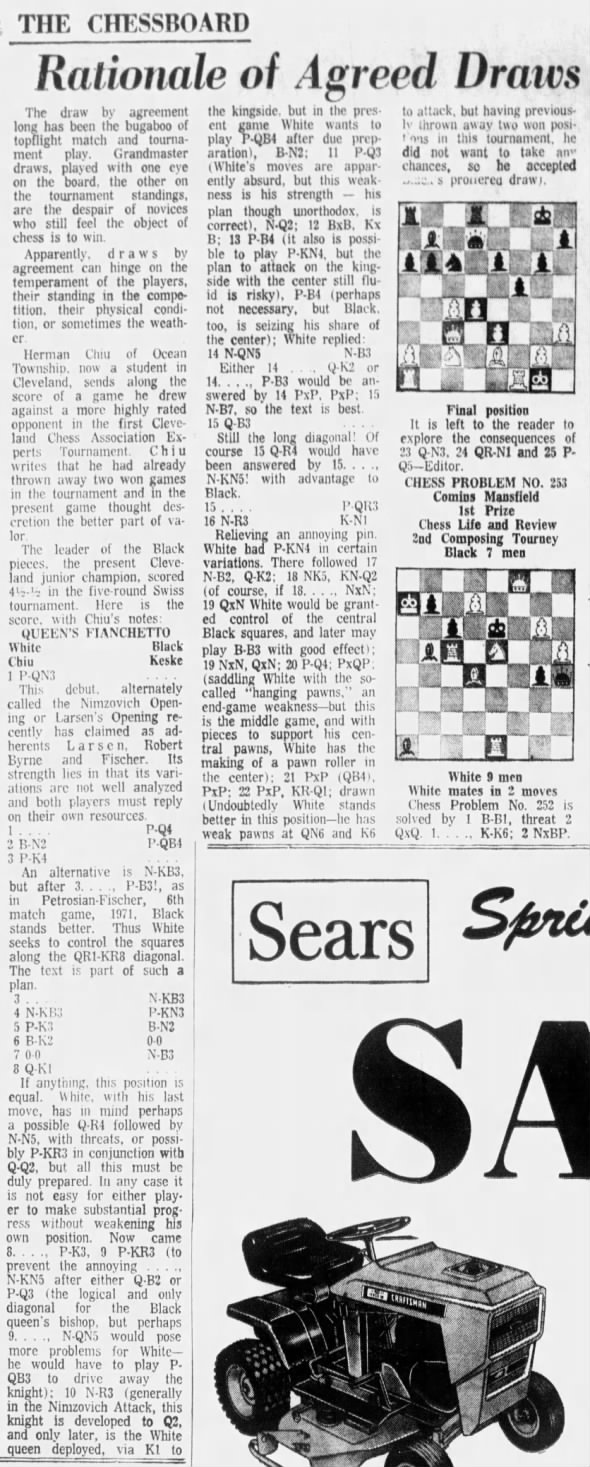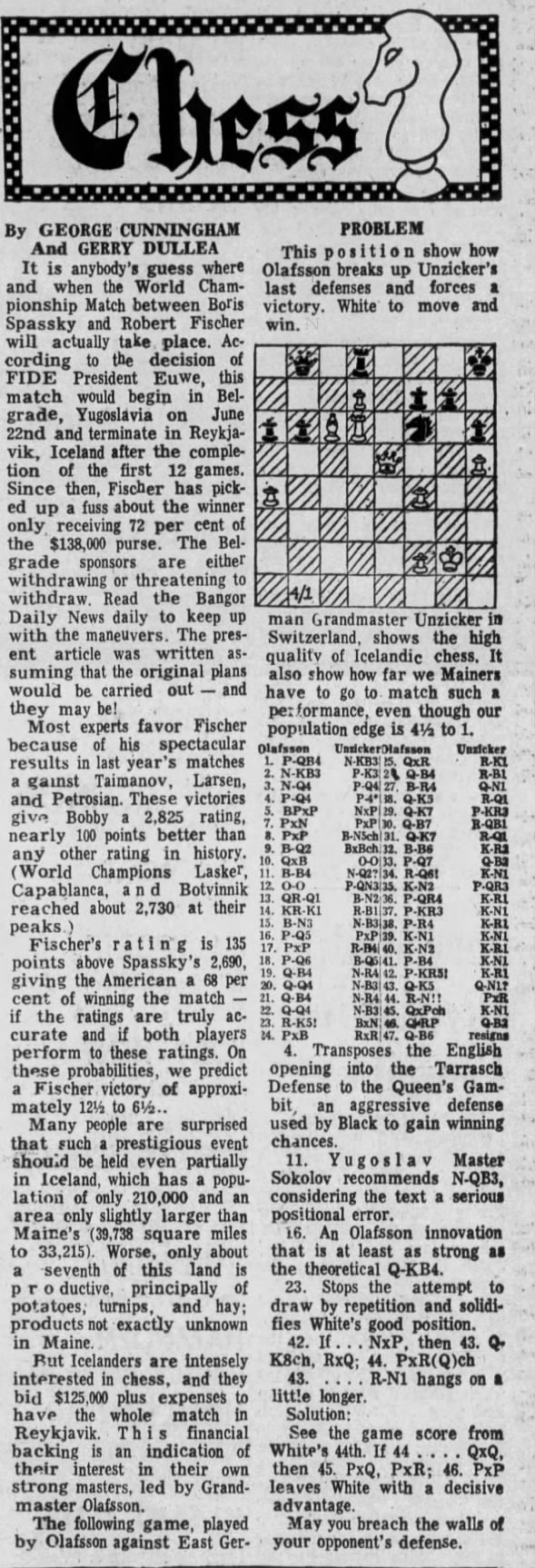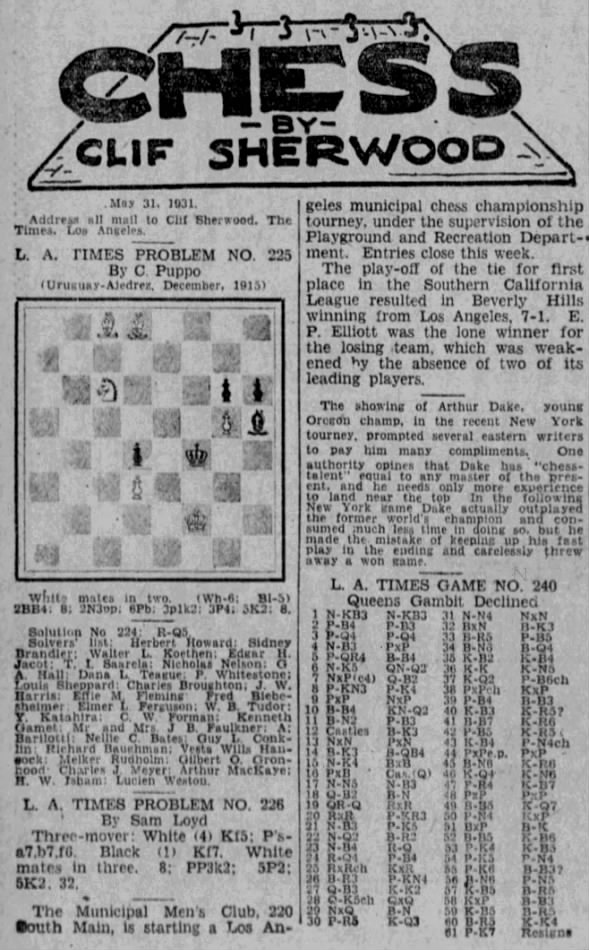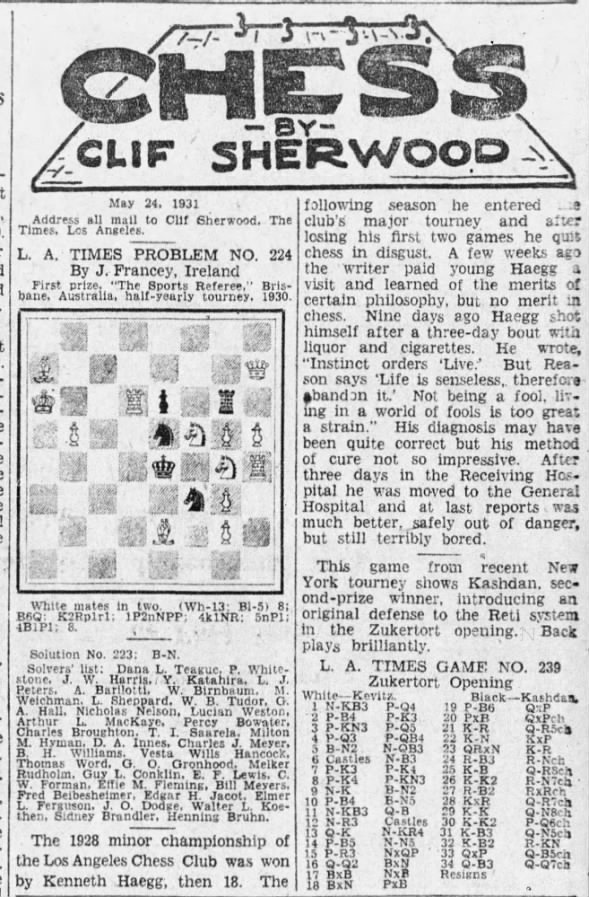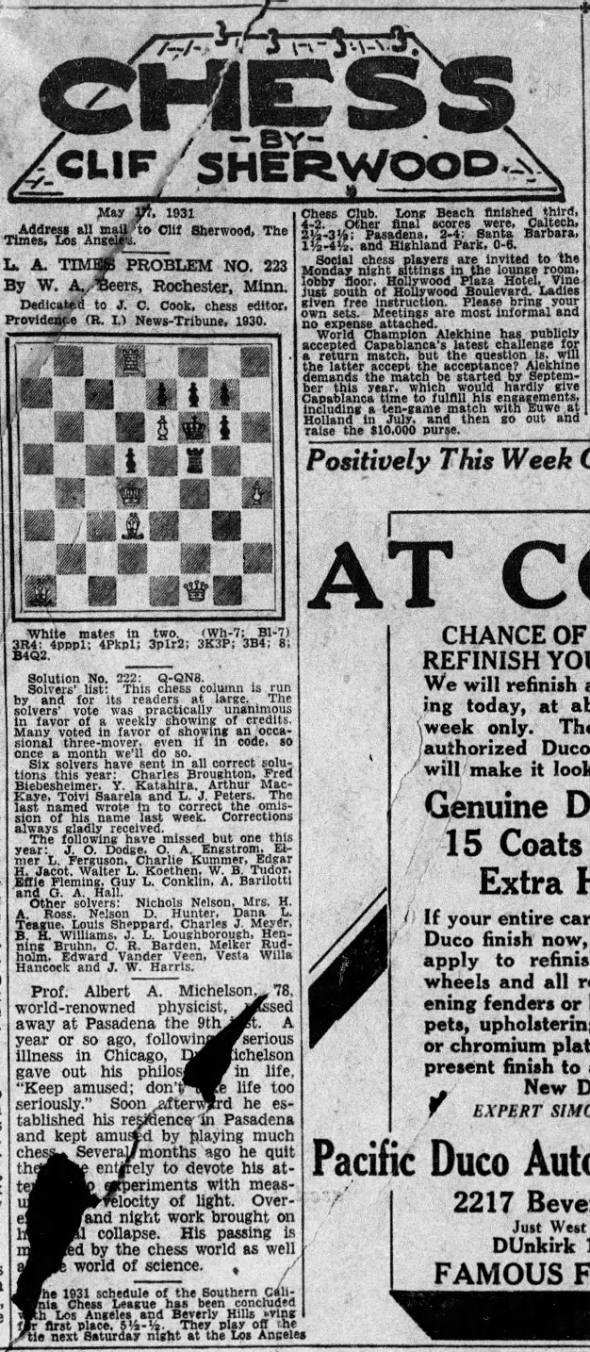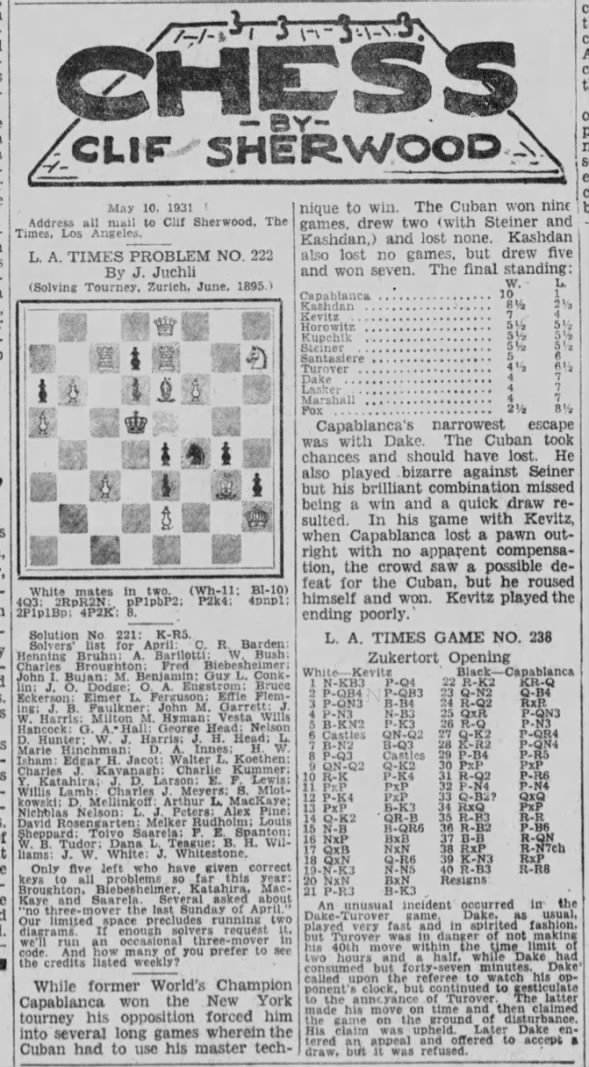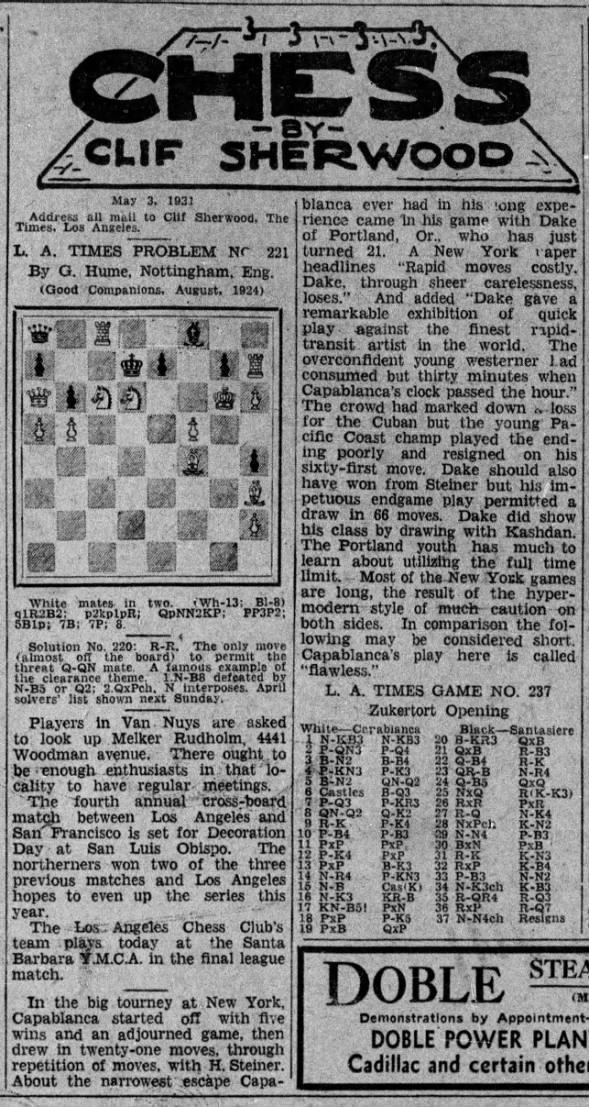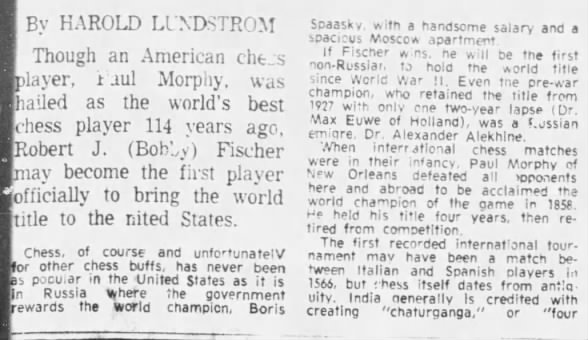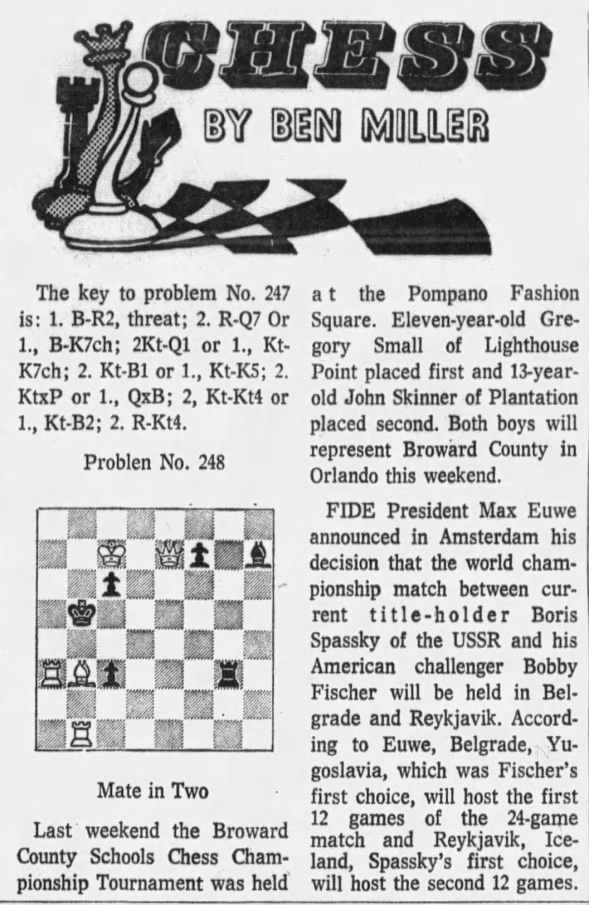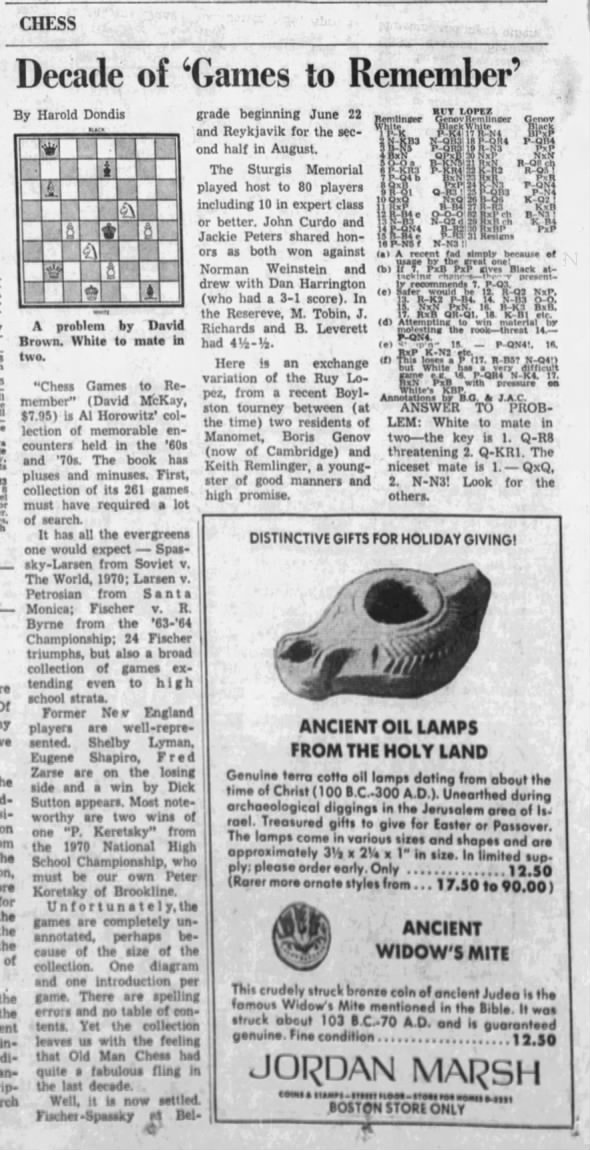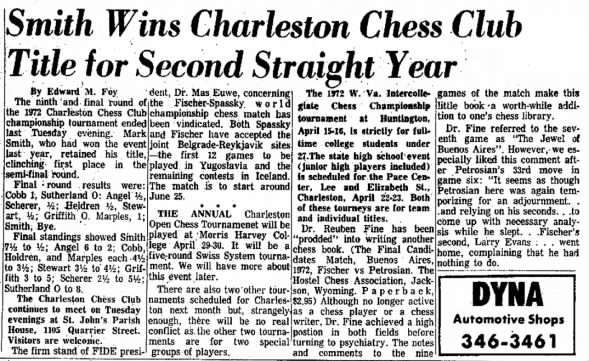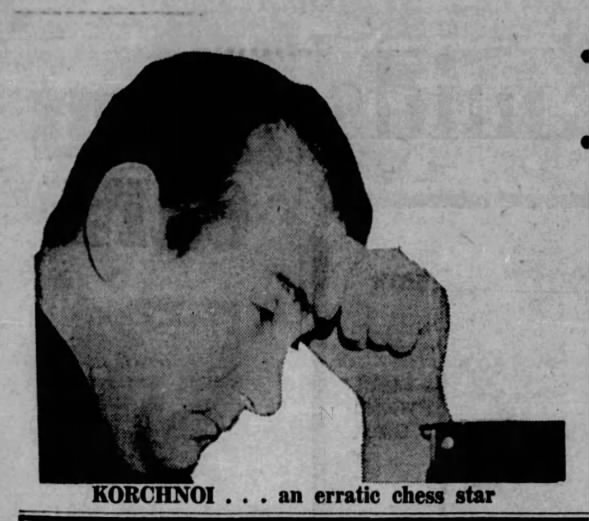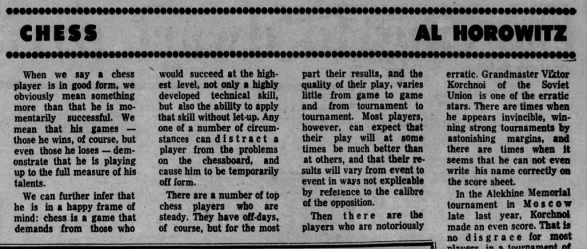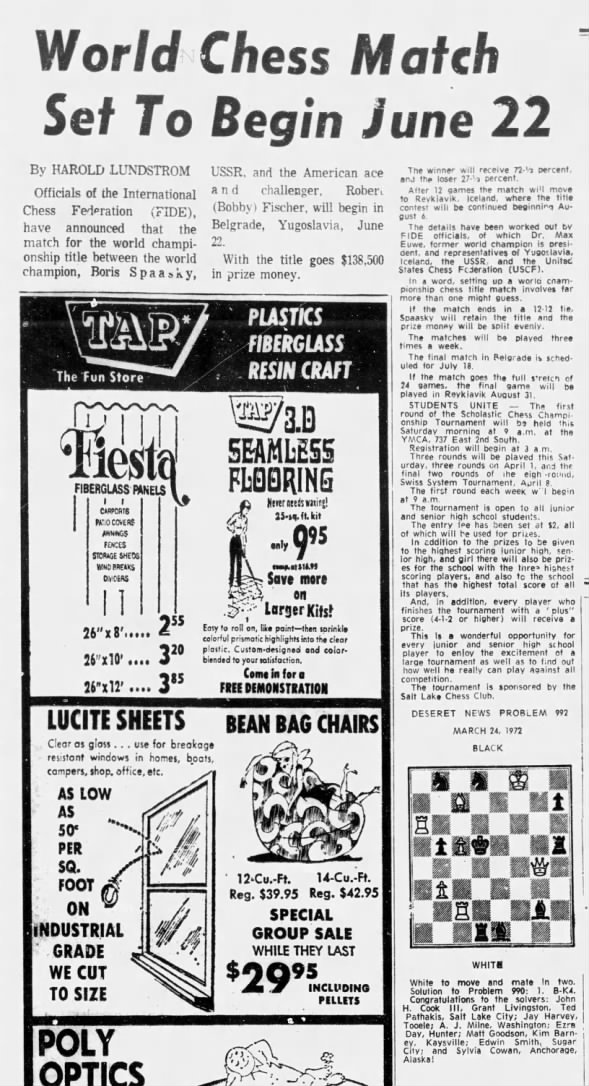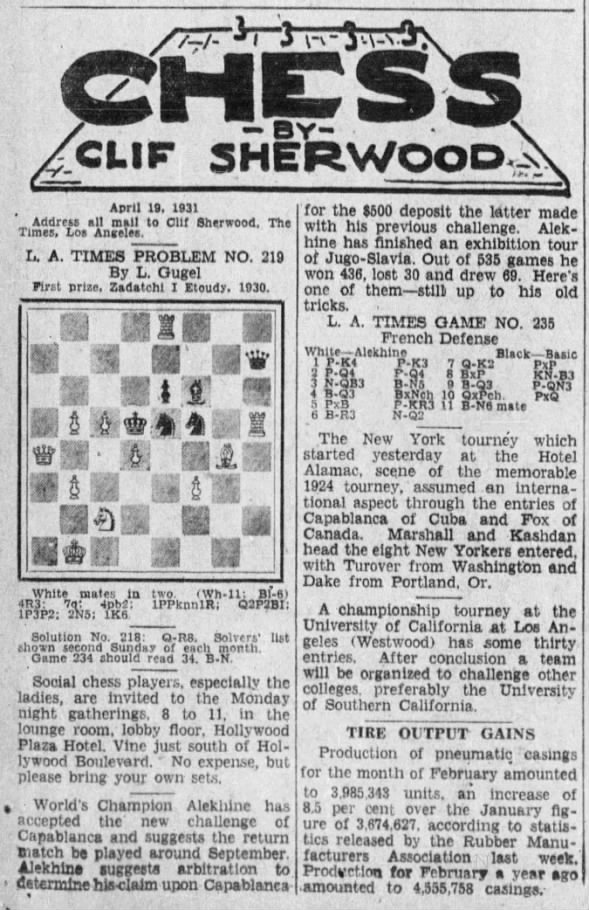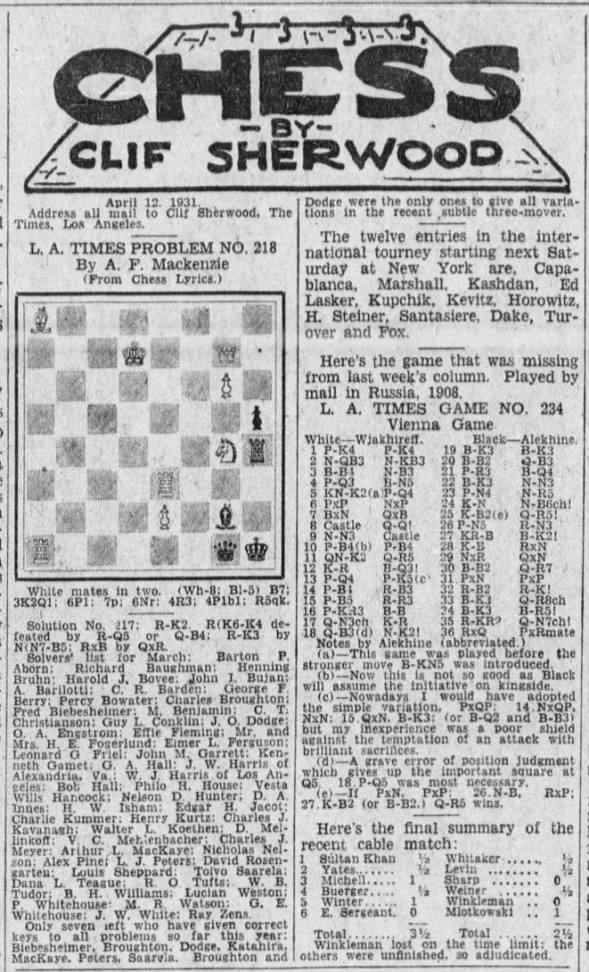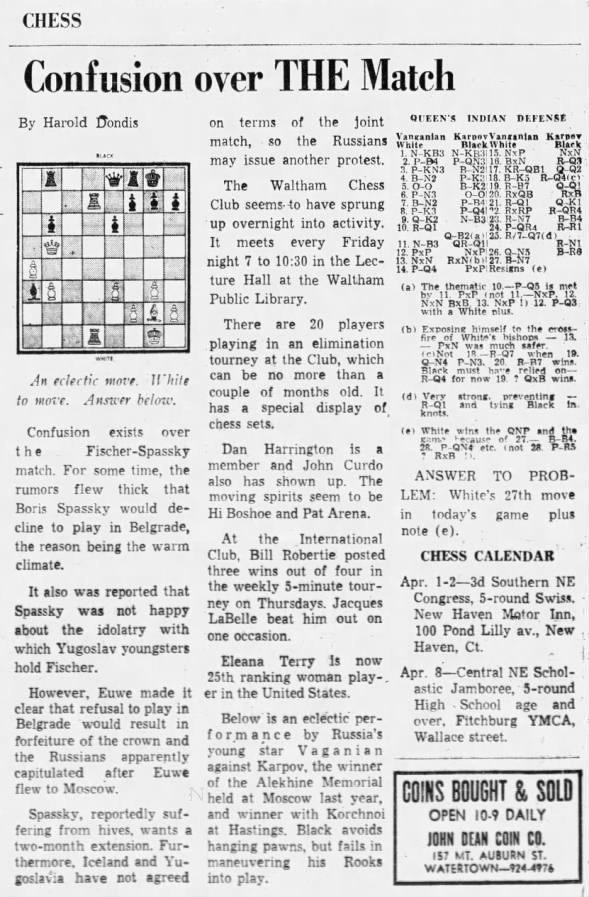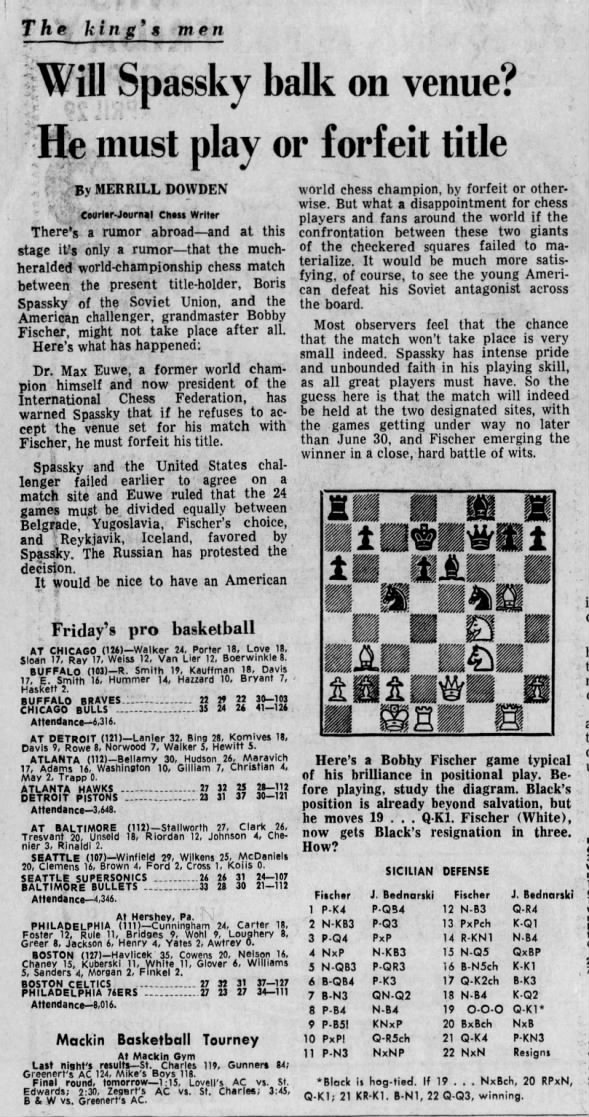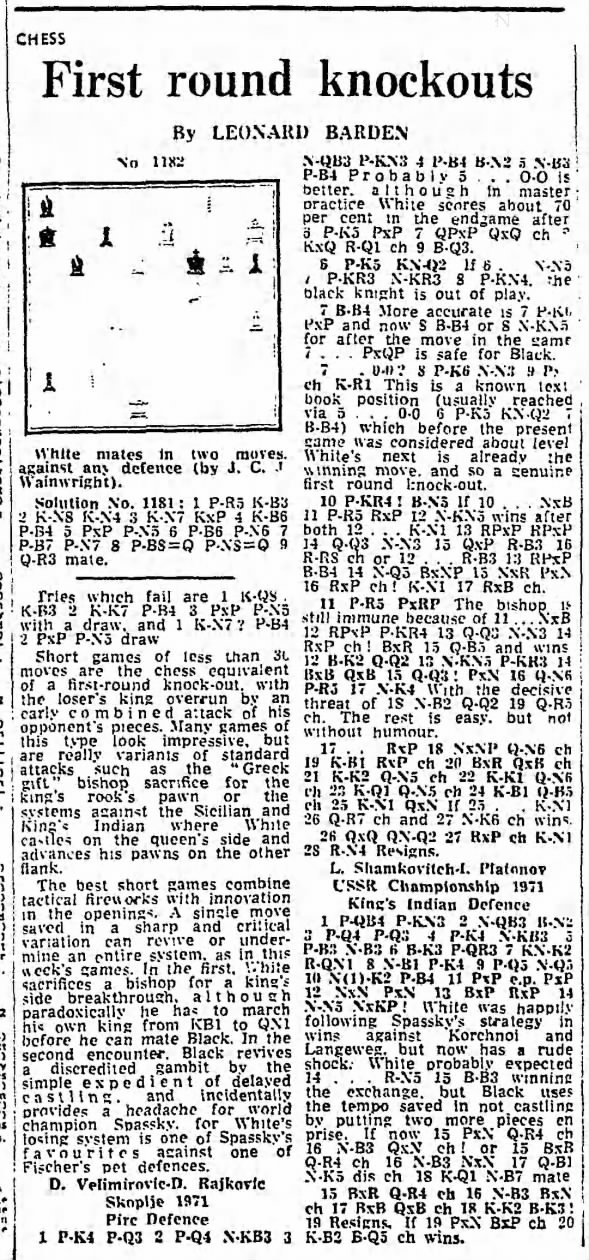< Prev Index Next >
 The Game of Kings Sat, Apr 8, 1972 – 52 · The Gazette (Montreal, Quebec, Canada) · Newspapers.com
The Game of Kings Sat, Apr 8, 1972 – 52 · The Gazette (Montreal, Quebec, Canada) · Newspapers.com
Off Again, On Again, Off Again
More trouble has developed in the Spassky-Fischer world championship arrangements. Belgrade, where the first 12 games were to be played, starting June 22, has backed out. Full details are lacking, but it appears that Fischer has made some financial demands that the Belgrade sponsor cannot accept. Fischer is reported to have dispensed with the services of his advisor, E.B. Edmondson, USACF official, in any further financial negotiations. To get a picture of what when on during the period immediately after the deadline of January 31 the following details are gleaned from the Swiss “Chess Express”.
As the Russians would not agree with Dr. Euwe's decision to split the match between Belgrade and Reykjavik, they insisted that the matter be put in the hands of the FIDE Bureau. The Bureau replied that only the president had the constitutional authority to decide, when the principals were unable to agree among themselves. Nevertheless, Dr. Euwe went to Moscow for a conference. The Russian protest concerned climatic conditions in Belgrade in summer, and the fact that previous matches had all been held in one city. They suggested switching the Yugoslav site to Bled in northern Slovenia (which had bid $100,000). Dr. Euwe refused any chance from the original decision, but another meeting was arranged for March 18-19 at Amsterdam. This brought together Edmondson, USA, Geller, USSR, and organizing delegates from Belgrade and Reykjavik, under the chairmanship of Deputy President of FIDE, Rabell-Mendez (Puerto Rico). Talks lasted fourteen hours and Dr. Euwe's original decision was maintained.
In spite of all this Belgrade still wants the match, but only in the fall, and provided firm guarantees can be given by all concerned.



 A
A
